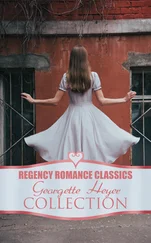Grace Livingston Hill - Crimson Mountain (Musaicum Romance Classics)
Здесь есть возможность читать онлайн «Grace Livingston Hill - Crimson Mountain (Musaicum Romance Classics)» — ознакомительный отрывок электронной книги совершенно бесплатно, а после прочтения отрывка купить полную версию. В некоторых случаях можно слушать аудио, скачать через торрент в формате fb2 и присутствует краткое содержание. Жанр: unrecognised, на английском языке. Описание произведения, (предисловие) а так же отзывы посетителей доступны на портале библиотеки ЛибКат.
- Название:Crimson Mountain (Musaicum Romance Classics)
- Автор:
- Жанр:
- Год:неизвестен
- ISBN:нет данных
- Рейтинг книги:3 / 5. Голосов: 1
-
Избранное:Добавить в избранное
- Отзывы:
-
Ваша оценка:
- 60
- 1
- 2
- 3
- 4
- 5
Crimson Mountain (Musaicum Romance Classics): краткое содержание, описание и аннотация
Предлагаем к чтению аннотацию, описание, краткое содержание или предисловие (зависит от того, что написал сам автор книги «Crimson Mountain (Musaicum Romance Classics)»). Если вы не нашли необходимую информацию о книге — напишите в комментариях, мы постараемся отыскать её.
Crimson Mountain (Musaicum Romance Classics) — читать онлайн ознакомительный отрывок
Ниже представлен текст книги, разбитый по страницам. Система сохранения места последней прочитанной страницы, позволяет с удобством читать онлайн бесплатно книгу «Crimson Mountain (Musaicum Romance Classics)», без необходимости каждый раз заново искать на чём Вы остановились. Поставьте закладку, и сможете в любой момент перейти на страницу, на которой закончили чтение.
Интервал:
Закладка:
They lingered together looking at them, like any other young man and maiden on their way to take dinner, and for the moment both forgot that they were strangers but a brief space before.
Inside, the tables were inviting, with a few autumn roses on each, bright pretty china, and spotless linen. Phil Pilgrim seated her as courteously as any of her other young men friends would have done. It seemed all most amazing when she thought of it, only Laurel was enjoying herself too much to think of it. She had a sense of well-being, and she didn’t want to spoil it by any questions of formality. There certainly was nothing wrong in what she was doing. She did know who he was; she had seen him as a child. That he had been working hard then in common denim overalls troubled her not at all. she had plenty of friends whose brothers were taking any positions, or "jobs," as they preferred to call them, that they could get and were glad enough to get them. Why should she distinguish between them because this young man’s relatives had been poor and he had had to work hard from early childhood? Certainly he was to be honored that he had come so far with so little help.
A waitress was by their side at once, naming a long list of interesting appetizers.
"Oyster soup, oh, that sounds good!" said Laurel. "Yes, I’ll take oyster soup!"
And when it came, there was no oyster in sight, but a smooth broth of rich, warm, tempting smell and taste, with crisp crackers of odd shapes.
An attractive tray of exotic salads of quaint fashioning and colors.
Raspberry aspic jelly on a pale lettuce leaf with a dab of whipped cream; orange fritters, crisp brown with delicious orange sauce.
"But you know this is quite an extraordinary menu for a little country town," said Laurel suddenly with an amazed glance toward her companion. "Is this on the regular highway? Does it attract tourists?"
"It sure does," said Pilgrim, deciding on stuffed roast lamb for the meat course. "I never came here before, but it isn’t hard to take, is it? Or to look at either."
"I should say not," said Laurel. "My, I’m glad I came here. And in such delightful company, too! A real soldier. I am honored."
Their warm looks met and lingered, and a pleasant joy throbbed across the table.
"We’re having fun!" twinkled Laurel with another little-girl smile.
And the light from a lost childhood he had never had answered from the young man’s eyes.
When the meal was concluded, they recalled pleasant memories of a high school both had shared, till the long yellow afternoon sunshine warned them that the evening was on its way. Phil Pilgrim sat back in his chair and grew serious.
"Now," said he, "what are we going to do next? In half an hour, it will be time for that train to arrive at the station, and then we shall know whether you can have your car in the morning or not. Are we ready to spring into action as soon as we have that knowledge, or are there things we ought to be doing? Suppose you go and interview that woman at the desk about a possible room for yourself in case you decide to stay. And then on the way back to the garage, I’ve thought of a couple of alternatives we might consider."
So Laurel went to the desk and Phil stood by the door looking out, a gravely pleasant expression in his eyes. He was well aware that there were days coming when he would have to pay for these few hours of unexpected happiness by deadly loneliness. Loneliness that would perhaps wear into his heart and life forever. Yet he was glad to have had this day in spite of all possibilities.
CHAPTER IV
Table of Contents
Adrian Faber was good-looking and wealthy. He had a fortune in his own right and not too many relatives to meddle with his affairs. he was brilliant and accomplished and owned a townhouse; a country house; a great, wide, long mansion up in the woods where he could house the whole hunting club on occasion; a yacht; a seashore cottage, sometimes called a "mansion"; and a car that was the envy of all his friends. He was young enough to be most interesting, pleasant, and full of delightful plans for having a good time.
On that particular Friday evening, he had planned an elaborate party to be held up in the woods at his hunt club, fifty miles away from the city, and in the opposite direction from Carrollton where Laurel, with a stalled car, was waiting. Laurel knew these bare facts, but she did not know as yet that Adrian had been planning to make her guest of honor, and that if his plans for driving her up to the hunt club worked out, there might be an announcement to make during the evening.
Therefore Adrian Faber was much put out at Laurel’s message.
Of course Laurel had not been aware that she was to be driving up to the party alone with Adrian. She had supposed there would be a crowd, and therefore just one guest would not be missed. Anyway, he had plenty of time now to supply her place with a substitute before they started.
But Adrian Faber set his handsome mouth haughtily. He didn’t at all like it that Laurel had let him down and spoiled his plans. Of course there was always Genevieve, but he was above fed up with her. Though—if there was no one else. It was true she might have other plans, but he was reasonably sure she would cancel anything to go to the hunt club with him. She adored the hunt club, and he really hadn’t been seeing much of her lately.
There was another young man, Royal Turner, who would be at that party that Laurel was missing. He was good-looking, too, in a merry kind of a way; reckless, black eyes and a little sharp black mustache. Laurel didn’t admire the mustache but could probably persuade him to give it up if she wanted to. He had been very attentive and had taken her places whenever she would go, plays and dances and wild rides. He was a reckless driver, and Laurel was sometimes a little afraid when she went with him. And he was always insisting that she should have a drink. Laurel didn’t drink. She had been brought up with an aversion to it. Her father and mother had been against it, and they had inculcated strong reasons into her mind why it was never the right thing to do. Laurel knew and realized dangers in drink that other young people seemed to ignore. And if she had not been taught these things, she had seen enough of the effect that drinking had on the young people she met in their crowd to make her hate it. Not even Adrian, with his quiet, reasonable persuasiveness that a little temperate drinking was necessary in company in order to be polite, had been able to move her to yield. Sometimes she felt that none of these young people were true friends, and it was in a reaction from all her social life that she had suddenly driven away to Carrollton to see about the school vacancy she had heard of through an old Carrollton schoolmate who was teaching in the city.
There were half a dozen other young men who had been attentive to Laurel while she had been staying with her cousins in the city trying to think her way through and plan a future for herself. They were not all of this high-class, wealthy type. There were a couple of young writers, newspaper men, really bright and interesting, Tom Rainey and Bruce Winter. Tom had recently returned from abroad, where he had been a special correspondent in the war zone, and he had a mysterious air that was most intriguing. He had dark hair and a way of seeming awfully important while still quite casual. Laurel was never sure whether she liked him a lot or whether she felt he was not quite sincere. Bruce Winter, on the other hand, had red hair, intense gray eyes, an almost rugged face, and a mouth that seemed inexorable when it was set in a firm, thin line under eyes that took on a stormy look. These two men were always in the same company, though not particularly friendly. Sometimes Laurel had an idea that one of them was shadowing the other, although she couldn’t be sure which was the shadowed. But they were both friends of hers, and both seemed to enjoy her company. They would likely be at that party this evening, and Tom at least would be drinking a great many cocktails. It seemed such a pity, for in many ways he was very attractive.
Читать дальшеИнтервал:
Закладка:
Похожие книги на «Crimson Mountain (Musaicum Romance Classics)»
Представляем Вашему вниманию похожие книги на «Crimson Mountain (Musaicum Romance Classics)» списком для выбора. Мы отобрали схожую по названию и смыслу литературу в надежде предоставить читателям больше вариантов отыскать новые, интересные, ещё непрочитанные произведения.
Обсуждение, отзывы о книге «Crimson Mountain (Musaicum Romance Classics)» и просто собственные мнения читателей. Оставьте ваши комментарии, напишите, что Вы думаете о произведении, его смысле или главных героях. Укажите что конкретно понравилось, а что нет, и почему Вы так считаете.












